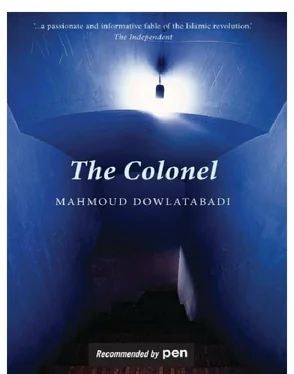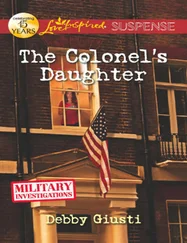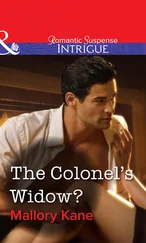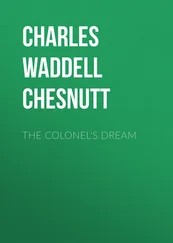“I’m dizzy. And my eyes are going dark, misting over…”
His head was spinning as he heard the waves of shouted abuse hurled by the crowd at all his offspring, apart from Masoud of course, ringing in his ears. Hardly had he recovered from this blow than he heard his own name being called over the loudspeakers, gaping like open-mouthed skulls. And before he knew what was going on, he felt strong, practised hands lifting him up and carrying him onto the makeshift dais where the coffins were laid out. In that instant, two things convinced him that he had not yet lost his wits. The first was that he felt as light as a pigeon feather and that his bones really had become hollow, and the second was that he felt a burning sensation on the sole of his left foot. His shoe had fallen off and he had no idea where he had lost it. When he got to the microphone beside Qorbani, he raised his hand to his hat and jammed it firmly on his head. The crowd below him became a faceless blur. In his dizziness, everything went dark in front of him.
Things were now out of his control, and he was forced to listen to the sound of Qorbani Hajjaj’s voice, and that of his own voice too, both booming out over the loudspeakers, stuck on their poles like the heads of traitors, and echoing meaninglessly over the serried ranks of the blank-faced mob that faced him. For several long minutes he was stuck there, having to endure the giddiness and the aching in his head, which was so painful that he felt his eyeballs were about to explode.
What a racket they were making!
And may God have mercy on the soul of Qorbani’s father, for he can see what I state I’m in after that son of his has forced me to deliver a string of insults against my Parvaneh, my Mohammad-Taqi and my Amir. At least he doesn’t insist on my applauding Masoud and revelling in the reflected glory of having had such a selfless son. He has let me go and handed me back to the crowd, so that so that my place can be taken by a string of fathers, mothers, aunts or uncles of the other glorious fallen martyrs. I must go and look for my shoe.
the colonel jammed his hat more firmly on his head, to stop it being knocked off by the crowd of admirers that now surrounded him. As he worked his way through them, he kept having to nod to left and right to thank them all for their sympathy and support.
In all this uproar, he had not even had a chance to spare a thought for Masoud, be it one of sorrow, grief, pride, or even envy. He was shocked at his own apathy and callousness. Like an automaton, he worked his way out of the crowd, away from their steamy breath and the dust they kicked up in their own eyes. He was gripped by a panic that was new to him in the face of a crowd that was so patently infatuated with death. They were ravenous for either condemnation or adulation; it was terrifying. This new panic was quite different to that curiously fermenting feeling of common-or-garden fear that beset him these days.
He had been permanently fearful for years. It all started when he buckled on his revolver for the first time and became aware of carrying a weapon. He had had to start thinking about life. The fear had been in him even before he had become aware of it. Perhaps he refused to recognise this fear as something much more ancient and primeval that had been passed down to him through generations, whose cryptic presence affected everything he did. Mankind spends all its life in a state of permanent insecurity, knowing no peace, and it never knows why. And in the end you die, but you don’t take that fear with you to the grave as you should. No, you pass it on to the next generation. When I became aware of fear, I had to accept it and gradually come to terms with it and split it up into different elements.
But this new dread of the crowd did not fit into any of the old familiar categories. It had laid claim to a new place in his head and he had to get it out of there. He had to get away from them all and go home.
Home… but where is home, now?

It was night before they finally buried Mohammad-Taqi. the colonel could not remember what had happened in the cemetery, or how the funeral had ended. When he got home his mind was full of the maddened, roaring tumult of the strange and unfamiliar faces. His lungs felt weighed down by a tombstone and he searched for enough fire in his belly to start a fight.
My children!
They had brought Mohammad-Taqi in, still in his bloody clothes, dumped him in the middle of the room, then sat round and waited. 50This gave the colonel a chance to take a breather and unloose the knot in his chest. The family were allowed to have him for the night and, after mourning him together, they each had a chance to sit in the corner and commune alone with him.
The next morning — the air was full of dust — I took an old photograph of Mohammad- Taqi out of my pocket and tucked it into the frame of The Colonel’s portrait, right under his polished field boots. I looked up into The Colonel’s all-seeing eyes and saw that he had closed them. Now all that was left for me to do was organise the funeral and the seventh-day memorial service for my son, you would have thought.
He did not know where he was, or even what time of day or night it was. He could hardly keep his eyes open and his hands were shaking. He felt he had shrunk to the size of a partridge and he craved a cigarette. But he was happy to have got away. Not caring about the mud, the potholes or his frozen shoeless foot, he kept on running, not looking where he was going, intent on putting distance between himself and the funeral crowd. He just wanted to be anywhere, it didn’t matter where, so long as it was far away from those voices belching out of the massed skulls and pursuing him through the streets. As he ran from the madding throng, the noise of the speakers steadily faded behind him. The voices became more and more unrecognisable as he went, until, to his horror, he heard them now as his own voice, cursing his own children.
No, this cannot be… I want to hear my own voice again: my own voice, The Colonel’s voice!

He was like a drowned rat again and his eyeballs were bursting with pain. The brim of his hat had curled up in the rain, he still had one shoe missing and his trouser legs were soaked and muddy right up to the knees. His coat tails had sagged even further with the weight of water they had taken up, and he stumbled as he sloshed his way through the mud. His mouth had dried up and his tongue tasted of snake venom. He had not eaten for the last day or two. He retched, but brought nothing up. What must he look like? The fear, confusion and exhaustion that filled the space between his hat and his coat made him think of a picture he had once seen somewhere of an old Jew who had just been let out of a concentration camp, with no idea of where he should go.
“This is the main square, colonel, the courthouse square.”
“But where’s my home… and my son?”
“It was over there, colonel.”
Were his eyes deceiving him? In that wide and empty square, in between rows of shrines to young martyrs of the revolution, stood serried ranks of constables, sheriffs and executioners from the old days, all lined up as if for his inspection. Yes, strange though it may seem, they really were there. In any case, his way home took him past a row of these shrines. The last and newest of them, presumably provided by Qorbani, was for his own Kuchik. the colonel felt sure that Mr Qorbani Hajjaj-the-Tyrant had also erected an even more lavish shrine to Kuchik in front of his house. Now he understood why Qorbani had made such a fuss about getting an enlargement of Kuchik’s photograph made, and why he had had a gilt frame made for it and had set it on the mantelpiece in his new living room. the colonel was beginning to suspect that maybe everything, down to the last detail, had been arranged beforehand. This worried him.
Читать дальше














